REVIEW: Almighty Voice and His Wife
Intermission is thrilled to be hosting the inaugural theatre reviews of the Emerging Arts Critics Programme 2019/20 season. Intermission is partnering with Soulpepper Theatre Company and theatre critic Robert Cushman to mentor this season’s participants.
History is written by the victors, an uncontested truth that could not be better illustrated than through Daniel David Moses’ Almighty Voice and His Wife. The play is simultaneously a tragic love story and a comedic portrayal of the oppression and colonization of Cree people. Under the insightful guidance of director Jani Lauzon, who was the female lead in the original production of Almighty Voice, the heart-wrenching story comes full circle with breathtaking finality.
Through raw physical emotions and childlike chemistry, James Dallas Smith as Almighty Voice and Michaela Washburn as his wife White Girl create two completely different atmospheres in the first and second acts. The juxtaposition creates a spellbinding beauty that serves to hold up the mirror to past crimes. Those who ignore history are doomed to repeat it. By covering up the true details of events we risk the very real possibility of repeating past wrongs.
In the first act Almighty Voice is hunted for escaping “justice” after killing a cow without a licence. Subsequently, a yearlong manhunt ensues forcing the newly-weds to go into hiding. Ken Mackenzie’s simple set design of wood and fur is used to make their story feel more intimate and personal. The power of simplicity in the set is aided by the beautiful naturalistic projections and the guttural bewitching sound of drumbeats. These elements intensify the hardships the young couple face as they fight for their lives while on the run.
Through their struggles, Smith looks at the love of his life, his crazy wife, with the kind of reverence and caution that makes it impossible not to smile and giggle at the genuine confusion and love in his demeanour. He grabs the audience’s attention simply in the way he stands there and looks at her with a spark of life in his eyes or watches her storm around the stage in his own state of bewilderment. Through Smith’s unassuming gestures it is obvious that he is at the mercy of his wife, especially when she surprises him—which is most of the first act.

Michaela Washburn in Almighty Voice and His Wife. Photo by Dahlia Katz.
However, it is the power and veracity of Washburn that is so captivating. She expertly navigates through rapidly shifting personalities from fear to giddy excitement to fierce defiance and loyalty to her husband. In her fast-fidgety movements, you can see her young joyful outlook on life and, contrastingly, the “bad medicine” instilled in her from the persecution she faced at residential school. Washburn’s soft smiles and intense unwavering gaze show just how strong of a woman White Girl truly is. But she is haunted by her fear of the glass god who sees all, the god they forced on her in the school of stone and glass. The ensuing circumstances leave the audience to wonder if her fears were justified.
Act two is where Almighty Voice and White Girl face a cruelty that serves not only to oppress them but to erase their identities from existence. In exchange for the naturalistic set that supports the first act, Mackenzie employs an extravagant artificial stage setup in the second. Indeed, the second act is meant to be a show put on to entertain those who have conquered and enslaved the Cree people.
Moses’ masterful use of vaudeville beautifully demonstrates how history was altered, causing the loss of Indigenous identity. In this act, both performers ask the question “who am I”? A powerful statement caused by the loss of their past.
Smith’s looks of shock and horror at not knowing where or who he is, while being manipulated for the enjoyment of others, highlights the seriousness and the lie of the comedic vaudeville routine. Yet it is hard not to laugh as Washburn tap dances around the stage as an over-exaggerated RCMP officer using bad humour to make light of a situation that is anything but.
With jerkily stiff movements and a plastered-on smile, Washburn shows the absurdity of the way Indigenous people were portrayed in these offensive shows. Even the traditional songs and dances of Indigenous people are twisted and used for entertainment, the meanings and significance of such cultural expressions becoming lost to the fog of legend. Still, in the midst of the over the top comedy, artificial props, lights, and sounds, the truth can’t be hidden.
Almighty Voice and His Wife is an inspirational display of perseverance against insurmountable odds. It shows people fighting to survive despite their histories, lives, traditions, and names being lost or forgotten. Yet their struggles are far from over. The legacy of residential schools and reserves still exist to subjugate Indigenous peoples. The play leaves the audience with plenty to reflect on and question, especially in today’s ever-changing social and political climate.

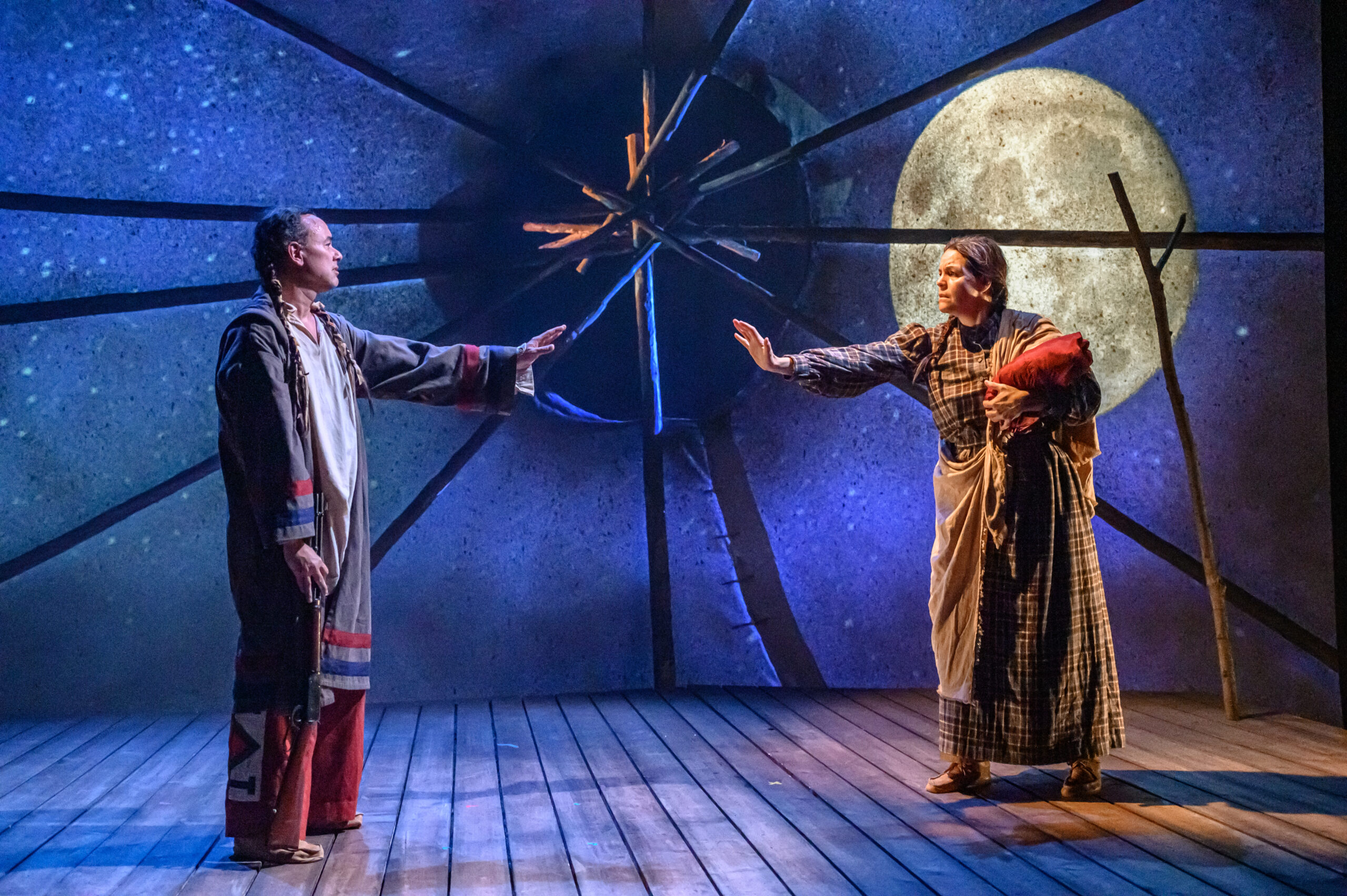


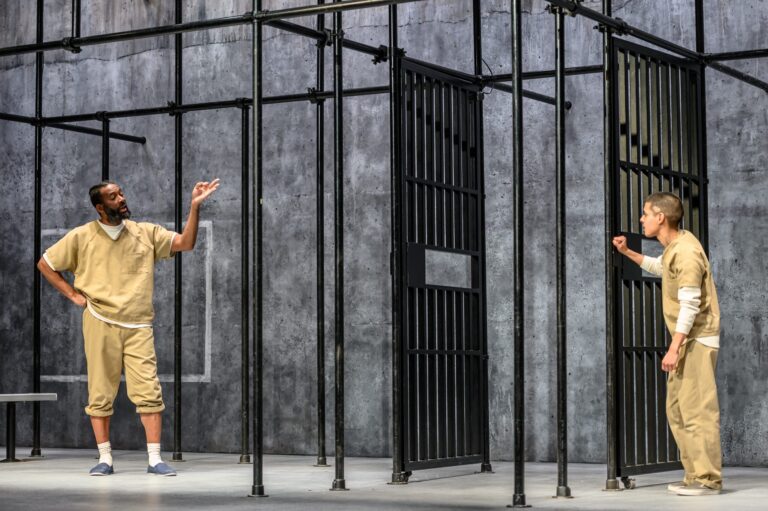
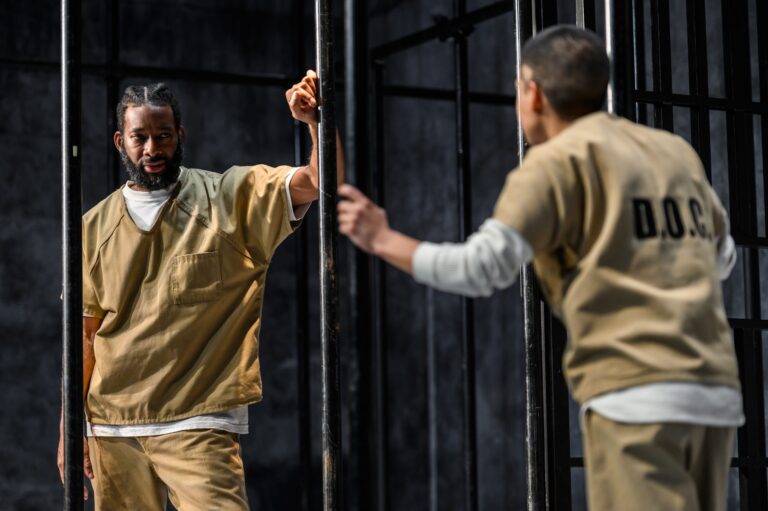
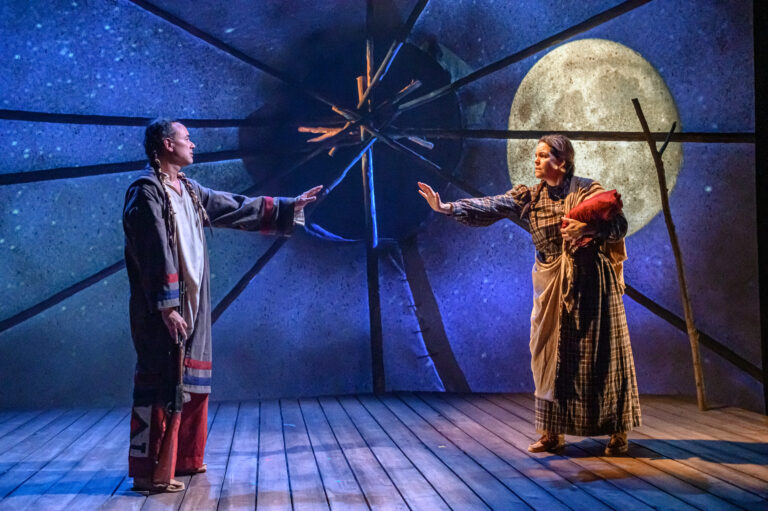
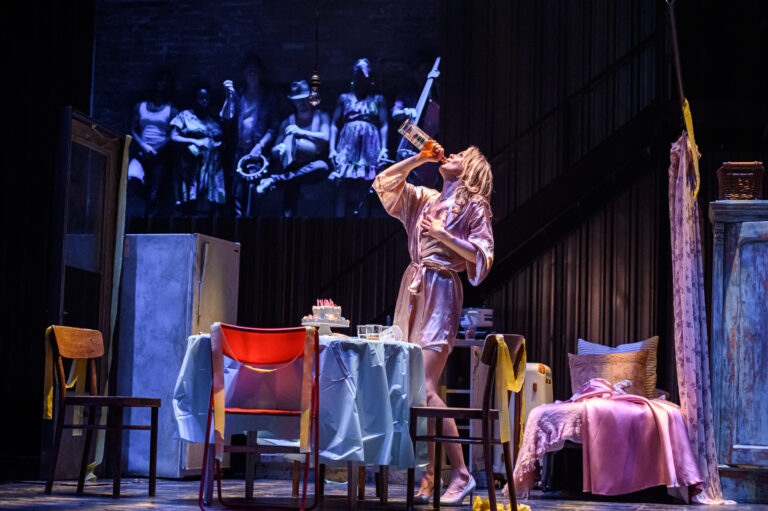
Comments